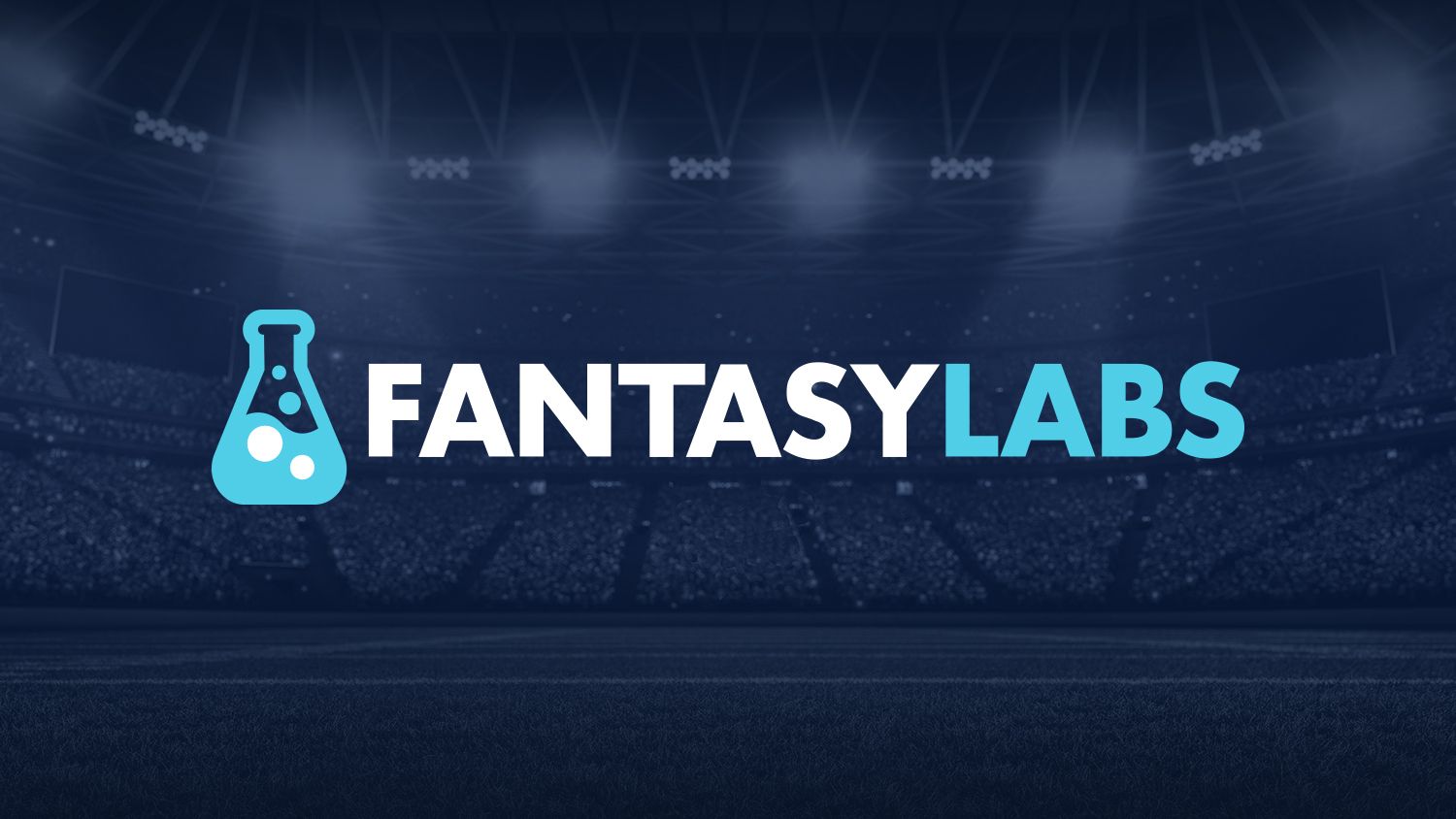The streets of Chicago play host to the NASCAR Cup Series for the second annual Grant Park 165.
Last year’s race at the Chicago Street Course was a wet affair, but it doesn’t completely negate the usefulness of data from that race. That said, we also have other road courses, practice, and qualifying to aid us in our decisions for our DFS lineups this week.
Before we jump into my picks, don’t forget all my NASCAR projections can be found in the NASCAR Models on FantasyLabs, complete with floor, ceiling, median, and ownership projections.
Let’s not skip the best part — my Perfect% metric — a metric that tells you how often certain racers appear in the optimal lineup when running 10,000 race simulations.
And don’t forget about the tools that FantasyLabs has to offer, like our Lineup Optimizer to effortlessly create up to 300 lineups, or our Lineup Builder if you like to hand-build your lineups.
Here are my NASCAR DFS picks for the Grant Park 165 at the Chicago Street Course.
Chicago DraftKings DFS Cash Game Strategy
AJ Allmendinger ($9000) is the first place to start in cash games, as he has the highest floor and the third-highest Perfect% on the slate. Allmendinger is a three-time, road-course winner and should be in all your cash-game lineups with his 37th-place starting position that will be even better with several cars moving to the rear of the field for the start.
With only 75 laps in the race and likely several different leaders as strategies shake out, we may not even need dominator points for our cash-game lineup, so I’m fine if you want to add solid road-course drivers starting farther back such as Martin Truex Jr ($9200) and William Byron ($9400).
To do so, Joey Logano ($7600) provides some nice salary relief and just took a bottom-half team to a top-10 finish at this track in the Xfinity Series race Saturday.
Chicago DraftKings DFS Tournament Strategy
We will need drivers that finish up at the front to excel in tournaments, and my model really likes the Toyotas of Ty Gibbs ($8400), and Tyler Reddick ($9800) as contrarian plays of what I’d call the “big five,” with Kyle Larson and last year’s winner Shane Van Gisbergen as the other two. Larson and SVG both project to be significantly overowned, and while Reddick and Christopher Bell also project to be overused, it’s not by as much as Larson and SVG. Gibbs, meanwhile, actually projects to be rostered slightly below his Perfect%.
I’d look to play each of the big five close to their optimal percentages in a multi-entry lineup and set a rule to have no more than two for the vast majority of my lineups, as it’s extremely unlikely that three of them make the optimal lineup with plenty of great place-differential plays. Even then, most of our lineups should have just one of the big five, with a chunk of lines at zero as well.
If I was playing a single-entry, or especially a qualifier, I’d probably fade Larson and SVG and hope for a bit of chaos and focus on either Gibbs, Reddick or Bell. I don’t have a preference of the three. But if you want to get really creative, fading all of the big five and playing Michael McDowell ($8600) is a sneaky option. McDowell is 11.2% to win this race according to my model, and he is 13.8% to end up in the optimal lineup given that he can end up in the optimal a small fraction of the time he doesn’t win. McDowell, along with SVG, are the only two of the big five plus McDowell that are guaranteed to be on the optimal strategy, as there’s reasons for the other three drivers to either grab a playoff point with a stage win (Larson, Reddick, Bell), or grab stage points to help get into the playoffs (Gibbs).
With the big five absorbing too much usage, there’s a lot of place-differential options that are projecting to be underutilized in tournaments.
Chase Elliott ($9600), William Byron ($9400), Ross Chastain ($8200), Kyle Busch ($7700), and Joey Logano ($7600) all project to be rostered near or below their Perfect%. Byron rates strongly by my model, so I like rolling with him in tournaments in addition to cash-game lines.
I’m going to go against my model with my mid-range pick though and take Chase Briscoe ($7200) as a great tournament option. I think my model projects him far too low, and I’d manually bump his projection up to get him in around 25% of my lineups. Given that he’ll almost surely be on the optimal strategy sitting 78 points below the cut line, I really like his chances of claiming a top-10 finish, which should be good enough with the place differential from rolling off 22nd. His performances at COTA, Indy Road Course, Road America, and Watkins Glen in the past leave me enough confidence in his abilities to bring home a strong finish on the streets of Chicago.
On the cheap end, Ryan Preece ($5900) is a completely unsexy name, but that’s exactly why he makes a good play. I have him projected to be rostered around 5% less than his Perfect%. Given he has finishes of 18th and 23rd, that should be good enough at a $5900 price tag and a 29th-place starting spot to get into the optimal lineup around 15% of the time or more.
Austin Hill, Ricky Stenhouse Jr., and Josh Berry also showed enough speed in practice to be worthy of some consideration in the $6k or less range.







